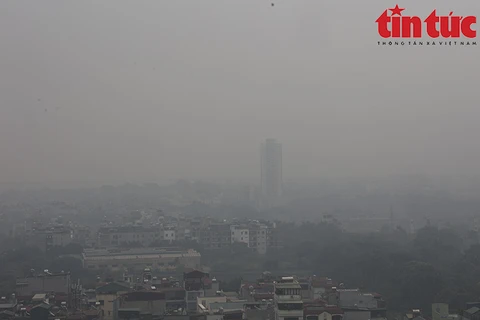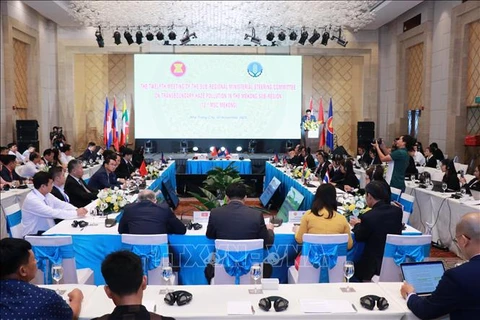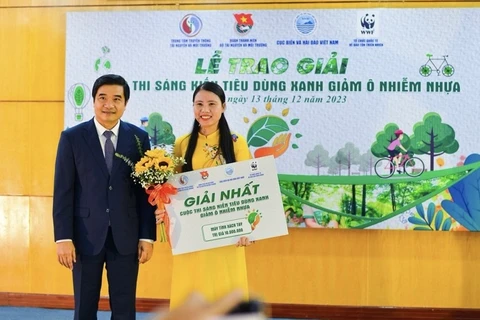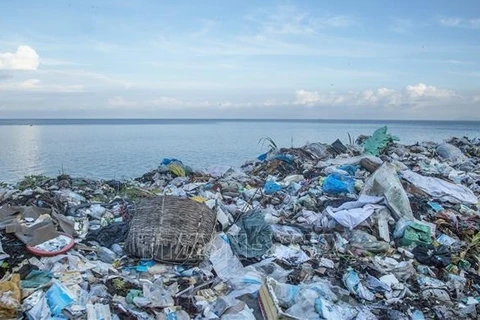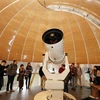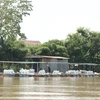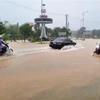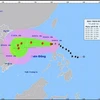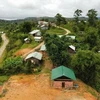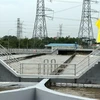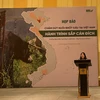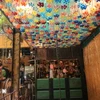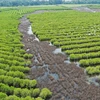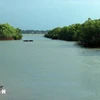Hanoi (VNA) – In the face of the worsening air pollution, Hanoi is rolling out measures to control activities that generate emissions and dust in the locality, especially the burning of rice straw.
The city Department of Natural Resources and Environment is coordinating with relevant authorities to propose mechanisms and policies to encourage and support business and production models using straw as their input material.
Meanwhile, the Department of Science and Technology is working to research and introduce suitable technologies serving the collection, transportation and treatment of straw in an environmentally friendly manner.
After the expansion of its administrative boundaries, Hanoi has been among the 17 biggest cities in the world. It is facing negative impacts from environmental pollution and climate change that require drastic solutions to address.
At the same time, statistics show that 7.8 million transportation vehicles are operating in the capital city, discharging emissions to the environment and worsening the situation.
In a recent conference jointly held by the city People’s Committee and the World Bank (WB) on managing the air quality for Hanoi, experts asserted that the settlement of air pollution in the city requires coordination from nearby localities.
The World Bank pledged to support the city in dealing with environment-related problems to build a green, clean, and beautiful city, and proposed five solutions to improve Hanoi’s air quality.
The bank advised Hanoi to effectively implement the ban on outdoor burning of straw and agricultural waste, better control agricultural waste and applying measures to reduce street dust.
The city should enforce motorcycle emission control standards, promote public transportation, and encourage electric vehicle development, it said, adding that the city should build a strategy to sustainably manage waste, increase the production of organic fertilisers from agricultural waste, and reduce ammonium emissions from agricultural activities, use of inorganic fertilisers and livestock activities, it recommended.
Particularly, the WB advised Hanoi to tighten emission standards for power plants and industry, increase the proportion of renewable energy, and encourage the reduction of coal and biomass use in craft villages./.
The city Department of Natural Resources and Environment is coordinating with relevant authorities to propose mechanisms and policies to encourage and support business and production models using straw as their input material.
Meanwhile, the Department of Science and Technology is working to research and introduce suitable technologies serving the collection, transportation and treatment of straw in an environmentally friendly manner.
After the expansion of its administrative boundaries, Hanoi has been among the 17 biggest cities in the world. It is facing negative impacts from environmental pollution and climate change that require drastic solutions to address.
At the same time, statistics show that 7.8 million transportation vehicles are operating in the capital city, discharging emissions to the environment and worsening the situation.
In a recent conference jointly held by the city People’s Committee and the World Bank (WB) on managing the air quality for Hanoi, experts asserted that the settlement of air pollution in the city requires coordination from nearby localities.
The World Bank pledged to support the city in dealing with environment-related problems to build a green, clean, and beautiful city, and proposed five solutions to improve Hanoi’s air quality.
The bank advised Hanoi to effectively implement the ban on outdoor burning of straw and agricultural waste, better control agricultural waste and applying measures to reduce street dust.
The city should enforce motorcycle emission control standards, promote public transportation, and encourage electric vehicle development, it said, adding that the city should build a strategy to sustainably manage waste, increase the production of organic fertilisers from agricultural waste, and reduce ammonium emissions from agricultural activities, use of inorganic fertilisers and livestock activities, it recommended.
Particularly, the WB advised Hanoi to tighten emission standards for power plants and industry, increase the proportion of renewable energy, and encourage the reduction of coal and biomass use in craft villages./.
VNA

